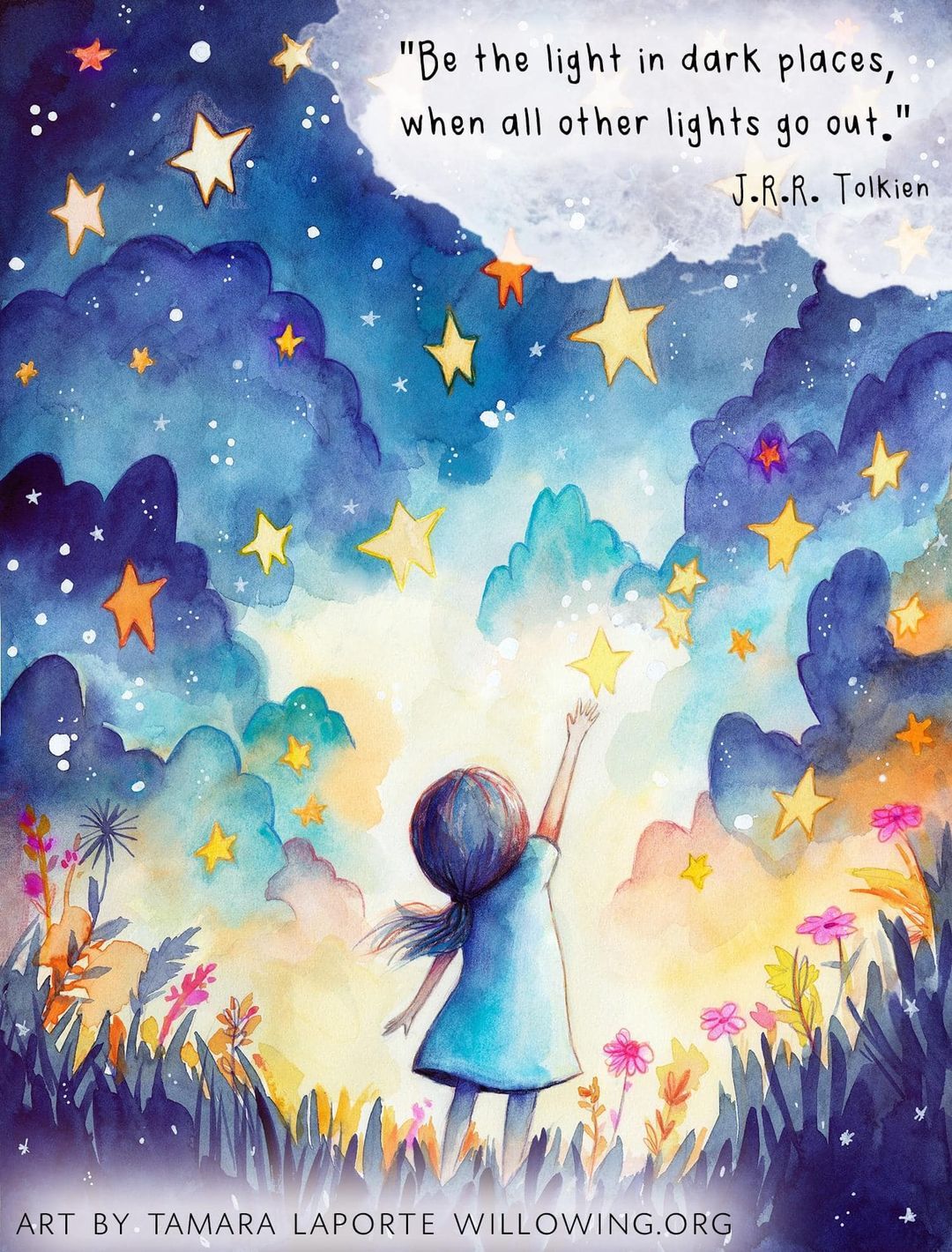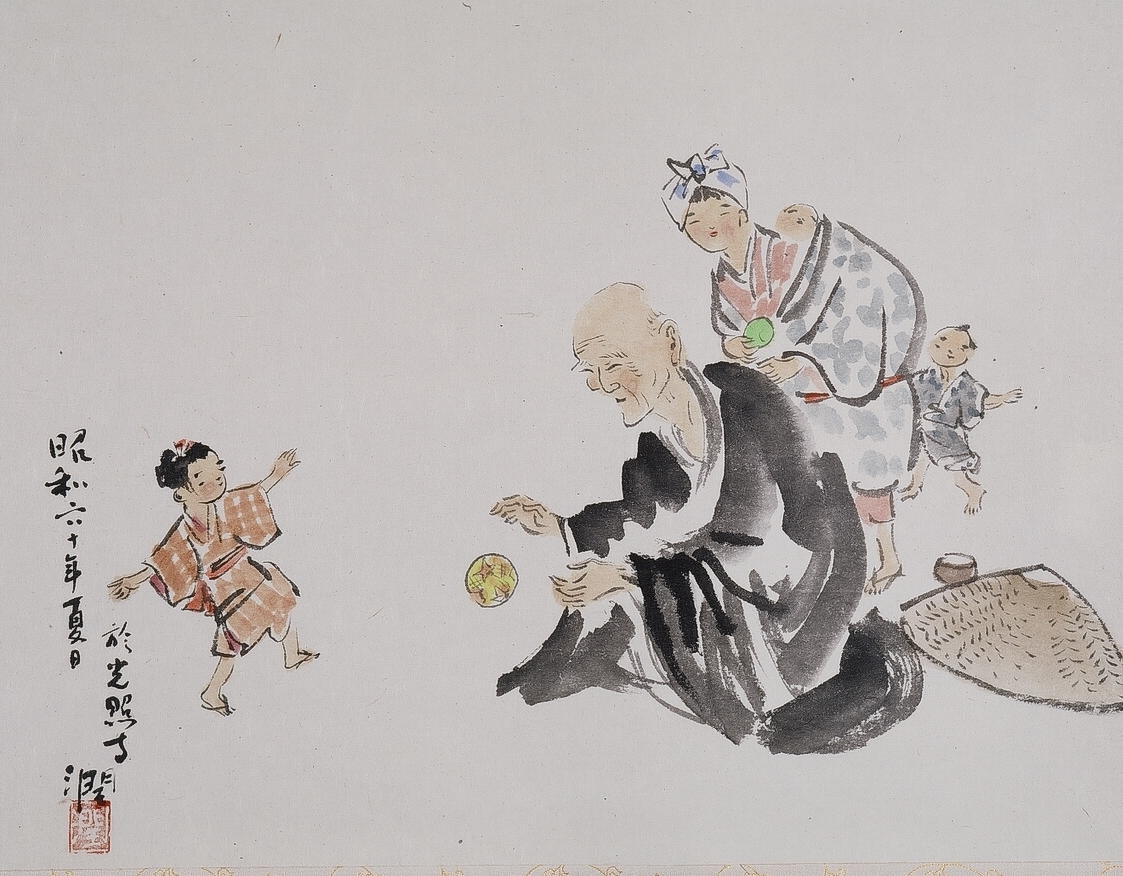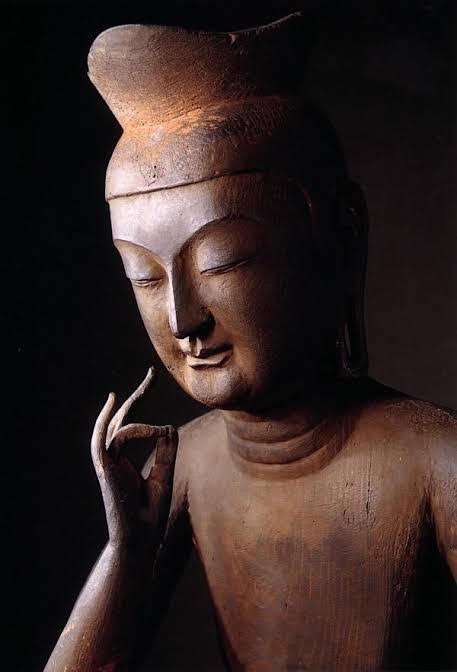Four strivings, services, supremes
While cleaning our center, I found someone had cleaned the floors, shelf/stove tops, sink, etc., well and unnoticed by others. Some people mow, sweep, contribute, donate (even from afar), etc., all unseen. This is called intoku, hidden virtues (陰徳), virtues cultivated and embodied with positive effects on all.
When Ryokan visited or stayed with families, the people there become harmonious and naturally changed their attitudes for the better. Even sending a card makes some happy and the world become bright. The four embracing matters of donation, loving words, beneficial actions, and sameness (in deeds) makes the world well.
The Buddha, Awakened One, recommended the four right strivings of decreasing and stopping bad karmas, and starting and increasing good ones. Any action activates ripples and reflective effects on oneself and others limitlessly. Dogen said that loving words have the able power to revolutionize the heavens.
The Dharma of Dependent Co-origination tells us that all are interdependently originating and ceasing, which means that we are all related and relative and that we must work together to make a better world with the four limitlessnesses or supreme abodes of friendship, compassion, joy, and equanimity (emancipation).
December 29, 2023 C.E.
Notes:
1.Hidden virtues are meritorious actions for oneself and others, done unseen by others. They have merit for oneself in that one genuinely embodies that merit regardless of other people’s notice, and others become honestly happy and harmonious regardless of whether something is done in return.
2.The Four Embracing Matters/Dharmas (cattāri saṅgaha-vatthūni) are donation (dāna), loving words (piya-vācā), beneficial action (attha-cariyā), and sameness (samāna-atta-tā, lit. same-self-ness). The four embracing matters are to embrace all to benefit all. The fourth is to become one with all or to engage (事 as the verb to serve) in the same state or action. So, they are also called embracing services or engagements.
3.Donation (dāna) can be material or immaterial (wealth or Dharma), so anyone without wealth can donate one’s kind eyes, harmonious face, loving words, helping body, sympathetic heart, seat, and shelter (called the Seven Donations without wealth).
4.Dogen said, “Hearing loving word in person makes one joyful in one’s face and pleases the mind; hearing loving words not in person make one engrave them into one’s liver and soul. Subduing enemies and befriending nobles make loving words fundamental. Loving words originate from a loving heart, and a loving heart makes the compassionate heart its seed. One must learn that loving words have the able power to revolutionize the heavens.”
5.Sameness (samānāttatā) is to put oneself in another’s position, working with others in the same situations. If one can put oneself with the whole world, being the same with it, one can be truly holy (wholly wholesome with the world), like the Buddha in the Dharma-body (Dharma-kāya), Dharma-nature (Dharmatā), Dharma-thusness (Dharma-tathatā), and Dharma-world (Dharma-dhātu).
6.The four right strivings (四正勤) are decreasing and stopping bad karmas, and starting and increasing good ones. So, another traditional translation, the four right stoppings (四正断), represents only a part of them and is not correct.
7.Religion derives from Latin religare (reunion). Religion is, thus, to reunite with holiness (wholly wholesomeness, cf. Rudolf Otto’s definition of religion as the Holy) from sin (=separation, separated sick, cf. a-sun-der, sundry).
8.To reunite with the holiness of the limitless ocean of life from being a separated small bubble or foam of ego or group ego is the goal of anyone or a universal religion, where one lives as a true friend in need of all, as expressed in Mitra, Mithra, Metteya, Maitreya, Mazda, Massiah, etc., and who lives in limitless life, light, liberation, and love.
9.A paradigm shift from our artificial, unilateral pyramidal civilization to a natural, cyclical Indra-net life culture for sharing life, heart, and harmony with the five blisses (awakening, freedom, equality, friendship, and peace) is essential to solve the global problematique. Culture is the cultivation of our potential in truth, goodness, beauty, and holiness (cf. sciences, philosophies, arts, and religions).
Please refer to the following for more detailed explanation:
四正勤、四摂事、四無量
私達のセンターを掃除していて、誰かが床、棚やレンジの上、流しなどを誰にも気付かれずに良く掃除していることを知りました。ある人達は全く人知れず芝刈り、清掃、寄与、(遠くからでも)寄付などをします。こらは隠徳、修養し身について一切に積極的な影響を与えます。
良寛が家庭を訪問したり泊まったりすると、そこの人々は和自然に自分たちの態度を良い方にかえました。一枚のカードを送るだけでも人を幸せにし世界を明るくします。布施、愛語、利行、同事(行為で)の四摂事は世界を良くします。
ブッダ、覚者、は悪を減らし、無くし、善を始め、増やす四正勤を勧めました。どのような行為も無限に自他に波及効果と反映効果を持っています。道元は愛語良く回天の力ありといいました。
縁起の法は、一切が相互依存しながら生起し生滅することを私達に告げ、私達は皆相依・相対であり、それは又、私達は皆で慈悲喜捨の四無量または四梵住でより良い世界を作る為に働かなければならない事を意味します。
2023共通年12月29日
註:
1. 隠徳は他人に気付かれずにする自他に効用のある行為です。それは他人の気付きに拘わらずその効用を純正に体得するという自らに取っての効用を持ち、何かお返しをするといったことに拘わらず他の人達が幸せで和むという他者に対する効用があります。
2. 四摂法(四摂事・四恩:cattāri saṅgaha-vatthūni)は布施(dāna)、愛語(piya-vācā)、利行(attha-cariyā)、同事(samāna-atta-tā、字義通りには、自己同化、他を自とし、仕:事える)である。第四は同じ状態あるいは行為で一切と一つになることです(事は動詞として「事:つかえる」、参考:事火:火に使える)。だから、それらは摂取(抱擁)奉仕または従事とも呼べる。
3. 布施(施与)は物も物でないものもあります(財施、法施)ので財物がなくとも誰でも愛眼、愛語、身行、慈心、床座、房舎を与えることができる(「無財の七施、無くて七施と言われている)。
4. 同事(同じにする事、事:仕かえる)は他者の立場になり、他者と同じ状況において共に働くことです。もし人が一切世界と同一であるとなることが出来れば、その人は真実に聖(世界と全体健全)になり、ブッダが法身(Dharma-kāya),)、法性(Dharmatā)、法如(Dharma-tathatā)、法界(Dharma-dhātu)になったようになる。
5. 道元は「怨敵を降伏し、君子を和睦ならしむること愛語を根本とするなり、面いて愛語を聞くは面を喜ばしめ、心を楽しくす、面ずして愛語を聞くは肝に銘じ魂に銘ず、愛語能く廻天の力あることを学すべきなり。」と言った。
6. 四正勤は悪業を減らし、止め、善業を始め、増やすことである。だから別の伝統用語である四正断はそれらの一部であり、正しくない。
7. Religion(宗教)はラテン語religare (再結合)に由来します。だから、宗教は罪(sin = 分離、分離病患, cf. a-sun-der, sundry)から聖(holiness = wholly wholesomeness 全体健全、参照 Rudolf Ottoの宗教の定義:the Holy)に再結合することである。
8. エゴや集団エゴの分離狭小の泡沫あるいは泡群から無限の命の大洋に再結合することは誰もあるいは普遍宗教の目標です、そこでは無量寿、無量光、無量解放、無量愛を生きる友・友情(Mitra, Mithra, Metteya, Maitreya, Mazda, Massiah)で表される一切の必要の時の真の友として生きるのである。
9. 私達の人工的で一方向の金字塔文明から命・心・和の分かち合いによる五福(覚醒、自由、平等、友情、平和)をもつ自然的で循環的な命帝網文化への枠組転換が地球問題群を解決する為には必須である。文化は私達の真善美聖(参考:諸科学、諸哲学、諸芸術、諸宗教)における潜在能力を修養することである。
詳細説明は下記を参照:
.
.
.
.

.
.
.
.




.
.
.
.

.
.
.
